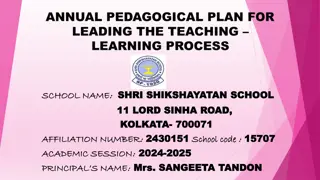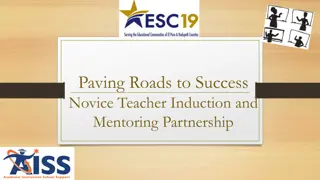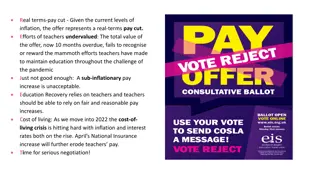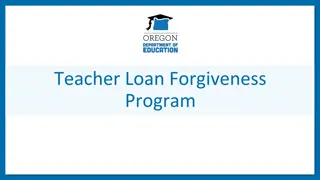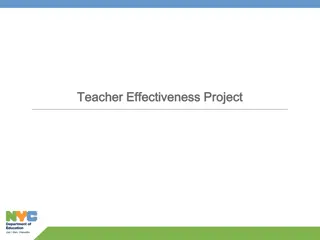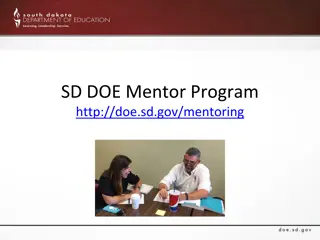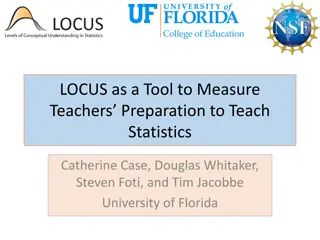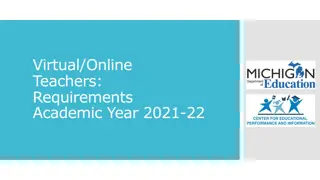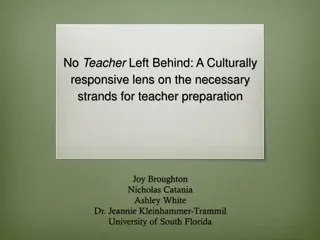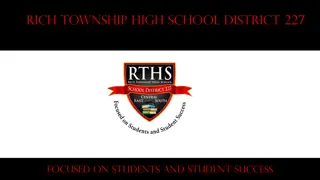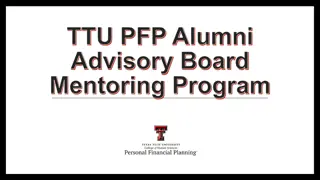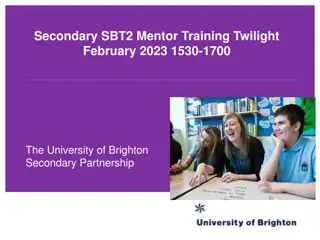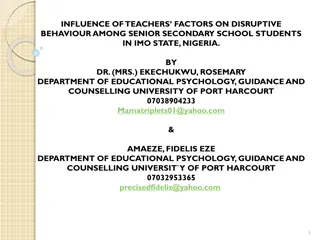Importance of School Mentor Teachers in Teacher Development
The role of School Mentor teachers is crucial in supporting beginning teachers by providing day-to-day assistance, training, and fostering a supportive relationship. Selecting Mentor teachers carefully is essential to ensure the personal and professional well-being of new educators. Criteria for selecting Mentors include certification in the relevant area, teaching experience, exemplary standing, conferencing skills, and organizational abilities. Additionally, effective Mentor teachers possess qualities like the ability to provide quality instruction to adults, flexibility, good interpersonal skills, willingness to serve, and integration of technology into the curriculum. Key responsibilities of Mentor teachers involve reviewing online training, orienting Interns to campus culture, and arranging observations and conferences to support Intern development. Demonstrating diplomacy skills, tolerance, consistent attendance at training, and implementing learner-centered approaches are also vital. Emphasizing these aspects contributes to successful School Mentor programs.
Download Presentation

Please find below an Image/Link to download the presentation.
The content on the website is provided AS IS for your information and personal use only. It may not be sold, licensed, or shared on other websites without obtaining consent from the author.If you encounter any issues during the download, it is possible that the publisher has removed the file from their server.
You are allowed to download the files provided on this website for personal or commercial use, subject to the condition that they are used lawfully. All files are the property of their respective owners.
The content on the website is provided AS IS for your information and personal use only. It may not be sold, licensed, or shared on other websites without obtaining consent from the author.
E N D
Presentation Transcript
The role and responsibility of the School Mentor teacher is crucial in promoting the personal and professional well being of the beginning teacher. Therefore, it is important that School Mentor teachers be selected carefully and with great consideration. 2
The School Mentor will be responsible for providing day-to-day assistance and training to the Intern. Assistance will be provided through development of: a supportive relationship with the Intern through school mentoring, modeling, conferencing, and encouraging the Intern s knowledge and application of skills, attitudes, and values necessary to effectively carry out the role of a classroom teacher 3
Certification in the area and at the level of the Intern Employed as a teacher on the same campus as the Intern 3-5 years teaching experience Exemplary standing in the school district Conferencing skills Organized 4
Ability to provide quality instruction to adults Flexible Good interpersonal skills Willing to serve, do training, and learn more about School Mentoring Integration of technology into the curriculum 5
Demonstrated diplomacy skills Demonstrated tolerance of others Consistent attendance at teacher in- service and implementation of new ideas in classroom practices Demonstrated learner-centered approach to teaching 6
Review School Mentor online training on the MCC website and return the Acknowledgement form to the Alternative Certification office. Orient Intern to the culture of the campus including building and district policies, timelines, procedures, and paperwork 7
Arrange monthly observations with the Intern Teacher each semester the Intern will observe the Mentor twice, and the Mentor will observe the Intern twice. Conduct conferences with the Intern after each observation. 8
Demonstrate coaching, team teaching, and other effective teaching practices with Intern Assist with lesson planning and locating resources Assist the Intern with daily trouble- shooting and problem-solving 9
Complete the proper intern observation documents for each observation Assist the Intern with planning assessments and intervention strategies for students who are struggling. Participate in the Intern s final end-of-year recommendation for Standard Certification. 10
Regular Intern/School Mentor observations and conferencing provides a platform for the teaching and learning process that occurs between the Intern Teacher and the School Mentor. 11
The School Mentor: teaches and supports an Intern through demonstrations, co-teaching, micro lessons, or in any number of creative ways. observes the Intern and provides guidance in the implementation of new skills, practices, and processes. Likewise, the Intern observes the School Mentor, describes practices and skills, and through conferences with the School Mentor, reflects on his/her own growth in craft and professional knowledge. 12
Observations should not interfere with either individual s regular planning period, but should occur during a mutually acceptable time. Observations are typically 45 minutes in duration. 13
Conferences should be conducted on a regular basis. The purpose of these conferences is to allow the opportunity for the School Mentor and Intern to chart new strategies and directions in management, organization, evaluation, curriculum development, and delivery. 14
Regular conferences should typically last about 15-20 minutes and should occur as soon as is mutually convenient. It is preferable for School Mentors and Interns to conference following an observation. As the School Mentor, try to ask open- ended questions to guide the Intern Teacher toward reflecting on areas of strength and areas for further growth. 15
School Mentors are paid a stipend through the MCC Alternative Teacher Certification Program for their duties as a School Mentor to the MCC Intern. In order to qualify for this payment each campus School Mentor must turn in all necessary paperwork required by the program. 16
See the letter you received in the envelope from the Intern teacher. In order to be paid, you must turn in: MCC Employment Application DPS Background Check Form School Mentor Form (information) Powerpoint Acknowledgement Form All paperwork required during the Internship (observation forms, etc.) 17
You will receive your payment in January or June, depending on when the Intern Teacher began his/her first year of teaching. Amount of stipend: oEnd of Intern s first year of teaching: $250 o 18
Observations should last 45 minutes. Make arrangements for the Intern teacher to observe you at least twice each semester (October, December, February, April) Conduct a post-observation conference. Coach the Intern and point out strategies you used. Allow them to ask questions. Remind the Intern to turn in a copy of the observation form during Internship class. 22
Observations should last 45 minutes. Observe your Intern teacher twice each semester (Sept, Nov, Jan, March). Conference with the Intern teacher to ask reflective questions and provide 1-2 suggestions. Send a copy of each form with the Intern teacher to Internship class as you complete these observations. 26




